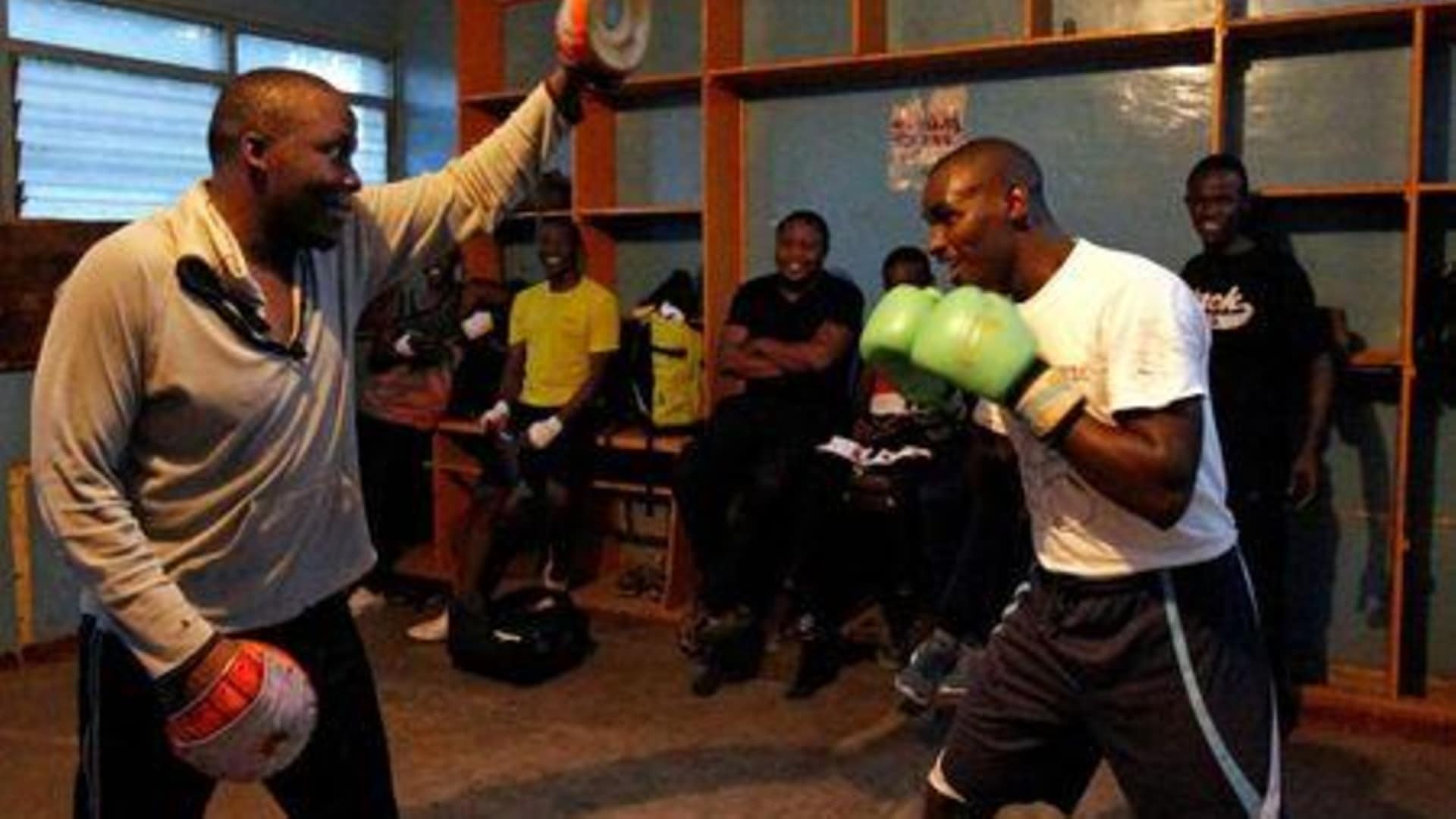
When lawyer Shadrack Wambui was growing up in one of Nairobi's slums, he vented his frustration at abusive police through boxing, cultivating discipline that helped him avoid confrontations that could have derailed his studies.
Now the 29-year-old is turning to the sport again to help young people in poor Nairobi neighbourhoods, combining his passion for the sport with informal lessons on the law and legal clinics to resolve marital disputes.
Wambui says he hopes his boxing sessions will help young people believe in themselves despite the challenges they face.
"We want to use boxing to advance other causes in our society, to help these young men channel their energies somewhere else so as to avoid criminal temptations," he said at a training session in the Kayole slum.
After he was admitted to the Kenyan bar in 2018, Wambui convinced 50 young lawyers to join him in devoting part of their time to pro bono work in the slums and has now registered "Sheria Mtaani", which means "Law in the Streets" in KiSwahili.
In a community hall, Wambui cracked jokes with young men in Sheng, a local slang that mixes KiSwahili and English.
The men listened attentively as he helped them hone their punching techniques, mixing in information on their rights with instructions on what to do if a policeman asks for a bribe: stay calm and call him.
"He advises us not to be rude to the police," said Gilbert Omondi, 27.
"We look up to him and I want to succeed in life just like he has," said Newton Mwatabu, 22. "He advises us on how to avoid misconduct and avoid going against the law."
Demands from police for bribes and more serious offences by officers such as assaults or killings are common in Nairobi’s slums and despite a government watchdog dedicated to investigating alleged abuses, victims almost never get justice, a Reuters investigation published in 2018 found.
Rights groups have made similar allegations since, including about incidents during coronavirus curfews, for which President Uhuru Kenyatta apologised.
Kenyan police spokesman Charles Owino said the police’s internal affairs unit and the government’s watchdog, known as IPOA, thoroughly investigate all complaints from citizens.
"If anybody has grievances against Kenyan police, they should report the matter to the two institutions for help," he said.







1732263788-0/BeFunk_§_]__-(30)1732263788-0.jpg)

1732263105-0/Express-Tribune-(5)1732263105-0-270x192.webp)







COMMENTS
Comments are moderated and generally will be posted if they are on-topic and not abusive.
For more information, please see our Comments FAQ